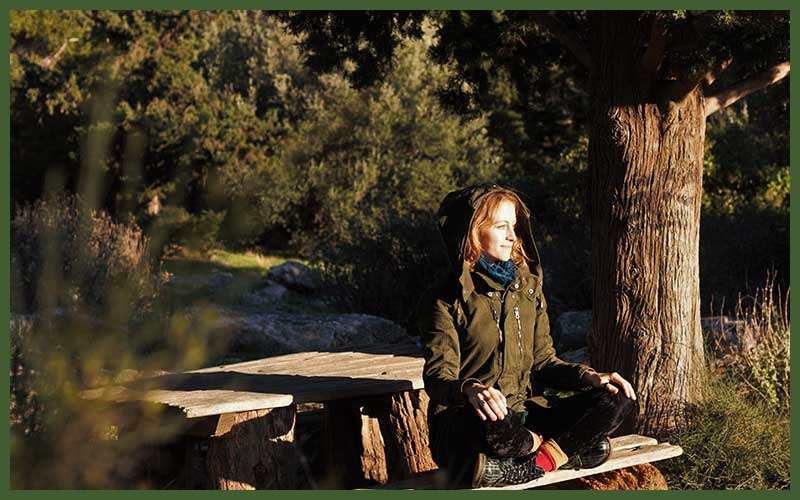The Importance of Spiritual Practices in Modern Life
ENGLISH
Georgiadou Vasiliki
3 min read
We live in a world where the flow of information, development, and the unnatural pace of work is constantly increasing, in environments that foster competition and continuous comparison of one’s skills and characteristics.
Very often, these situations can become overwhelming and exhausting. It’s hard to predict work outcomes, adapt to challenges, and feel self-worth in a culture that does not always pay attention to the unique needs of the individual.
Alienation from Ourselves
On a personal level (sometimes due to the pressure of daily demands), our relationships become a field of confusion, anxiety, frustration, and even alienation. Alienation first from our own selves, and then from the people we love.
No matter how much one tries to be self-aware and collaborate effectively with others, the feeling of being “off-balance” is often enough to alter our perception of reality, leading to spiritual and emotional collapse.
Returning to Spiritual Practices
At such times, it’s necessary to return with even greater devotion and conscious choice to our spiritual practices.
Regardless of the faith or spiritual path one may follow, having a physical and emotional space to return to—where one feels safety, comfort, reverence, a sense of belonging, and most importantly, love—can work wonders for a wounded heart!
Dedicating Time to Yourself
Anything from dedicating an hour a day to reflection, prayer, meditation, or reading a book that enriches your consciousness, to creating a calm and warm atmosphere around you, can be extremely beneficial. Besides the obvious effect of bringing you closer to what you believe in, it’s also a fundamental way to heal the body on a physical level.
Research has shown that when we calm our mind and body for extended periods, we help the brain produce Theta waves. These waves rejuvenate its chemistry, induce an overall state of calm, reduce stress levels, and boost the immune response (just some of the many benefits of deep relaxation and meditation).
We also shift the body’s autonomic nervous system into its parasympathetic state, which promotes restoration and healing at the cellular level. This, in turn, allows the mind to relax as well. Thus, we see a mutual response being created—no matter where we start, relaxation and rejuvenation will affect both areas (mind and body) like a closed-circuit electrical flow.
A Safe Space to Return To
Having a safe space to return to in moments of inner crisis—whether it’s difficulty managing our emotions or a breakdown in communication with someone else—offers great psychological support, as it provides a sense of balance and stability: “I can always return to something that doesn’t change like everything else around me, and it teaches me trust, patience, and a sense of protected safety.”
Additionally, knowing that we can always return to a space that is safe for us, where we feel calm and protected, gives us the strength and support we need at times when we feel emotionally overwhelmed, lacking care, and unable to cope.
Creating Spiritual Practice Rituals
Here are some quick and easy ideas for creating spiritual practice rituals:
Dedicate time daily (preferably at the same time) for meditation/reflection.
Make it a habit to read books that expand your consciousness. Three pages a day is enough! 😉
If you enjoy warm baths, start taking them weekly as a form of physical comfort and relaxation (especially on very stressful days!).
Use your imagination in whatever way suits you best and create a “personal quiet space” at home, filled with candles, music, books, warm blankets, pillows, and anything else you might need for the time you spend there.
Go outside and take a long walk, alone! If you do it regularly, your mind will begin to look forward to this “me time” and will signal when it “needs” another walk!
Spend time listening to your favorite music. Music is one of the easiest and most grounding tools we can use for quick and effective relaxation. It’s also a very personal experience, as music preferences differ greatly depending on the genre we prefer.
Share your problems, joys, thoughts, and even your craziness with a good friend. Connecting with others reminds us that we’re not alone in our difficulties; that life is an experience worth sharing, no matter how it affects us from time to time.
Devote some time in your daily routine to thinking about others—whether through prayer or actively offering something of yourself to the community. Getting out of the habit of thinking only about our own problems is the quickest path to spiritual growth. It teaches us compassion, altruism, and love, among other things.
I hope something here might be useful for you and your loved ones.
My wish is that you create a “sacred” space in your daily life, in a way that fits who you truly are.
Blessings from a warm heart,





© 2024. All rights reserved.
Made by Rockstar.gr
